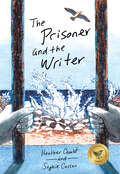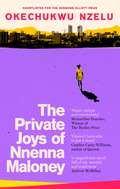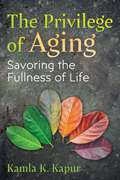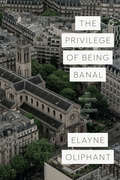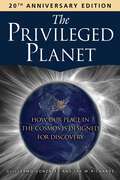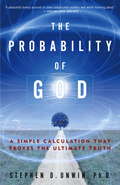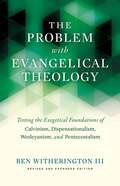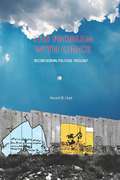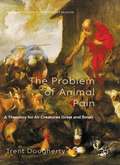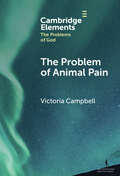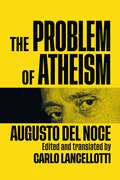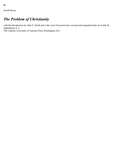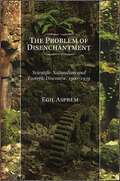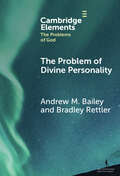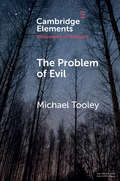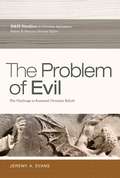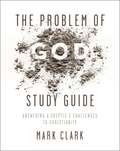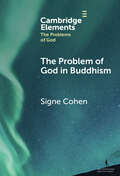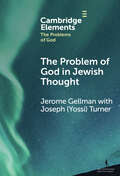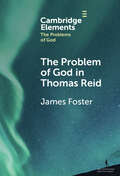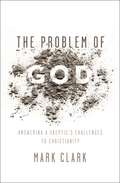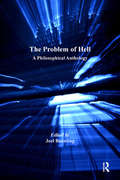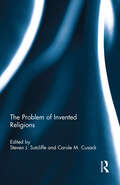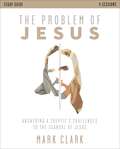- Table View
- List View
The Prisoner and the Writer
by Heather CamlotWhen a Jewish army captain is falsely accused of treason and sent to prison, a writer uses his pen to fight for justice. In 1895 a prisoner watches the ocean through the bars of his cell. Accused of betraying France, Captain Alfred Dreyfus is exiled to a prison on Devil’s Island, far from his wife and children. It’s a horrible fate — but what if he’s innocent? Seven thousand miles away, the famous writer Emile Zola wonders: Is Alfred a traitor to France? Or a victim of anti-Semitism? Convinced that Alfred is innocent, Emile knows that it is his DUTY to help. He pens the famous letter “J’Accuse …!”, explaining that Alfred was blamed, charged, tried and convicted … only because he is Jewish. This powerful middle-grade story written in verse with full-page illustrations is told from the perspectives of both Alfred Dreyfus and Emile Zola, two men whose courage changed the world. The true story, published in time for the 125th anniversary of “J’Accuse …!”, acts as a reminder that a person committed to truth, justice and equality must stand up and speak out against prejudice for themselves — and for others. Includes an author’s note and further historical context. Key Text Features author's note illustrations sources references informational note historical context historical note further information afterword headings Correlates to the Common Core State Standards in English Language Arts: CCSS.ELA-LITERACY.RL.4.3 Describe in depth a character, setting, or event in a story or drama, drawing on specific details in the text (e.g., a character's thoughts, words, or actions). CCSS.ELA-LITERACY.RL.5.3 Compare and contrast two or more characters, settings, or events in a story or drama, drawing on specific details in the text (e.g., how characters interact). CCSS.ELA-LITERACY.RL.5.7 Analyze how visual and multimedia elements contribute to the meaning, tone, or beauty of a text (e.g., graphic novel, multimedia presentation of fiction, folktale, myth, poem).
The Private Joys of Nnenna Maloney
by Okechukwu NzeluSHORTLISTED FOR THE DESMOND ELLIOTT PRIZE 2020'A magnificent novel, full of wit, warmth and tenderness' Andrew McMillan'Smart, serious and entertaining' Bernardine EvaristoHow do you begin to find yourself when you only know half of who you are?As Nnenna Maloney approaches womanhood she longs to connect with her Igbo-Nigerian culture. Her once close and tender relationship with her mother, Joanie, becomes strained as Nnenna begins to ask probing questions about her father, who Joanie refuses to discuss.Nnenna is asking big questions of how to 'be' when she doesn't know the whole of who she is. Meanwhile, Joanie wonders how to love when she has never truly been loved. Their lives are filled with a cast of characters asking similar questions about identity and belonging whilst grappling with the often hilarious encounters of everyday Manchester.Okechukwu Nzelu brings us a funny and heart-warming story that covers the expanse of race, gender, class, family and redemption, with a fresh and distinctive new voice. Perfect for fans of Queenie by Candice Carty-Williams and Zadie Smith's White Teeth.'Effortlessly capture[s] the tricky nuance of life, love, race, sexuality and familial relationships' Candice Carty-Williams, author of Queenie'Edifying and hilarious, The Private of Joys of Nnenna Maloney is a beautiful debut that you won't want to put down' Derek Owusu
The Privilege of Aging: Savoring the Fullness of Life
by Kamla K. Kapur• 2025 Nautilus Gold Award• Shares the author&’s inner adventure to face aging, illness, and death, along with hard-won wisdom on the art of resting, happiness, and letting go• Draws on stories from different spiritual traditions and offers strategies, tools, and ways of thinking to navigate the challenges of aging• Reveals how to examine your fears and regrets, declutter the mind of negative thoughts, and reframe reality with the powerful tool of unconditional self-lovePresenting a clarion call to the aging to awaken before they die, Kamla K. Kapur explores how we can become warriors on the spiritual path in order to embrace and prepare for the truth of our mortality and the ultimate triumph of conscious living and dying.Set in both California and India, Kapur shares her inner adventure to navigate the hazardous battlefield of aging with the aid of spiritual guides that pilot her to safety. She offers hard-won wisdom on the art of resting, happiness, and letting go in order to achieve vitality, satisfaction, and joy in the life we are fortunate to still have.Revealing the arc of her own self-discovery, she examines her shadows, fears, anxieties, and regrets, decluttering her mind of disempowering thoughts and reframing and co-creating her reality with the powerful tool of unconditional self-love. She describes how to confront, express, and embrace your darkness, consciously and honestly, to move forward into the ever greater wholeness of being.Drawing on stories from a variety of cultural traditions, Kapur demonstrates the power of self-examination, vigilance, and intentionality to have a successful old age. She offers numerous strategies, tools, and ways of thinking to ensure mental, physical, and spiritual strength so we can meet aging&’s challenges and transform from the people we once were to the ones we are becoming on the penultimate stage of earthly life.
The Privilege of Being Banal: Art, Secularism, and Catholicism in Paris (Class 200: New Studies in Religion)
by Elayne OliphantFrance, officially, is a secular nation. Yet Catholicism is undeniably a monumental presence, defining the temporal and spatial rhythms of Paris. At the same time, it often fades into the background as nothing more than “heritage.” In a creative inversion, Elayne Oliphant asks in The Privilege of Being Banal what, exactly, is hiding in plain sight? Could the banality of Catholicism actually be a kind of hidden power? Exploring the violent histories and alternate trajectories effaced through this banal backgrounding of a crucial aspect of French history and culture, this richly textured ethnography lays bare the profound nostalgia that undergirds Catholicism’s circulation in nonreligious sites such as museums, corporate spaces, and political debates. Oliphant’s aim is to unravel the contradictions of religion and secularism and, in the process, show how aesthetics and politics come together in contemporary France to foster the kind of banality that Hannah Arendt warned against: the incapacity to take on another person’s experience of the world. A creative meditation on the power of the taken-for-granted, The Privilege of Being Banal is a landmark study of religion, aesthetics, and public space.
The Privileged Divine Feminine in Kabbalah (Perspectives on Jewish Texts and Contexts Series #10)
by Moshe IdelThis volume addresses the complex topic of the preeminent status of the divine feminine power, to be referred also as Female, within the theosophical structures of many important Kabbalists, Sabbatean believers, and Hasidic masters. <p><p>This privileged status is part of a much broader vision of the Female as stemming from a very high root within the divine world, then She was emanated and constitutes the tenth, lower divine power, and even in this lower state She is sometime conceived of governing this world and as equal to the divine Male. Finally, She is conceived of as returning to Her original place in special moments, the days of Sabbath, the Jewish Holidays or in the eschatological era. Her special dignity is sometime related to Her being the telos of creation, and as the first entity that emerged in the divine thought, which has been later on generated. <p><p>In some cases, an uroboric theosophy links the Female Malkhut, directly to the first divine power, Keter. The author points to the possible impact of some of the Kabbalistic discussions on conceptualizations of the feminine in the Renaissance period.
The Privileged Planet: How Our Place in the Cosmos Is Designed for Discovery
by Guillermo Gonzalez Jay Wesley RichardsEarth. The Final FrontierContrary to popular belief, Earth is not an insignificant blip on the universe's radar. Our world proves anything but average in Guillermo Gonzalez and Jay W. Richards' The Privileged Planet: How Our Place in the Cosmos Is Designed for Discovery.But what exactly does Earth bring to the table? How does it prove its worth among numerous planets and constellations in the vastness of the Milky Way? In The Privileged Planet, you'll learn about the world's: life-sustaining capabilities water and its miraculous makeup protection by the planetary giantsAnd how our planet came into existence in the first place.rivileged Planet you will discover:Why the best scientific evidence refutes the misnamed Copernican Principle-the widely held idea that there is nothing special about Earth or its place in the universeWhy the sheer number and size of galaxies does not mean that Earth's capacity to sustain life is the result of blind chanceHow Earth is precisely positioned in the Milky Way-not only for life, but also to allow us to find answers to the greatest mysteries of the universeStriking ways in which water doesn't behave like most other liquids-and how each of its quirks makes it perfectly suited for the existence of creatures like usThe harmony of Earth and the Moon: how they work together to sustain Earthly life as one intricate system-and how that system produces the best solar eclipses where Earthly observers can see themHow Jupiter and Saturn protect Earth from cataclysmic destructionHow the laws and constants that govern the universe must be narrowly fine-tuned for the existence of any complex lifeThe Privileged Planet's astounding findings should lead any individual to reevaluate entrenched assumptions about the universe-and even to reconsider our very purpose on what so many have dismissed as nothing more than an accident of cosmic evolution.
The Probability of God: A Simple Calculation That Proves the Ultimate Truth
by Dr. Stephen D. UnwinDoes God exist?This is probably the most debated question in the history of mankind. Scholars, scientists, and philosophers have spent their lifetimes trying to prove or disprove the existence of God, only to have their theories crucified by other scholars, scientists, and philosophers. Where the debate breaks down is in the ambiguities and colloquialisms of language. But, by using a universal, unambiguous language—namely, mathematics—can this question finally be answered definitively? That’s what Dr. Stephen Unwin attempts to do in this riveting, accessible, and witty book, The Probability of God.At its core, this groundbreaking book reveals how a math equation developed more than 200 years ago by noted European philosopher Thomas Bayes can be used to calculate the probability that God exists. The equation itself is much more complicated than a simple coin toss (heads, He’s up there running the show; tails, He’s not). Yet Dr. Unwin writes with a clarity that makes his mathematical proof easy for even the nonmathematician to understand and a verve that makes his book a delight to read. Leading you carefully through each step in his argument, he demonstrates in the end that God does indeed exist.Whether you’re a devout believer and agree with Dr. Unwin’s proof or are unsure about all things divine, you will find this provocative book enlightening and engaging.
The Problem With Evangelical Theology: Testing the Exegetical Foundations of Calvinism, Dispensationalism, Wesleyanism, and Pentecostalism
by Ben WitheringtonThere is no doubting the legacy of Protestant Reformers and their successors. Luther, Calvin, and Wesley not only spawned specific denominational traditions, but their writings have been instrumental in forging a broadly embraced evangelical theology as well. Ben Witherington wrestles with some of the big ideas of these major traditional theological systems (sin, God’s sovereignty, prophecy, grace, and the Holy Spirit), asking tough questions about their biblical foundations. Advocating a return to Protestantism’s sola scriptura roots, Witherington argues that evangelicalism sometimes wrongly assumes a biblical warrant for some of its more popular beliefs. <p><p> Witherington pushes the reader to engage the larger story and plot of the Bible in order to understand the crucial theological elements of Protestant belief. The Problem with Evangelical Theology casts today’s evangelical belief and practice―be it Calvinistic, Wesleyan, Dispensational, or Pentecostal―in the light of its scriptural origins. Witherington offers a comprehensive description of evangelical theology while concurrently providing an insistent corrective to its departures from both tradition and text.
The Problem With Grace
by Vincent W. LloydThis book develops a post-secular, post-sectarian political theology, taking that burgeoning field in a new direction. With his bold suggestion that political philosophy must begin with political theology, Vincent Lloyd investigates a series of religious concepts such as love, faith, liturgy, and revelation and explores their political relevance by extracting them from their Christian theological context while refusing to reduce them to secular terms. He assembles an unusual canon of thinkers "too Jewish to be Christian and too Christian to be Jewish"—Simone Weil, James Baldwin, Franz Kafka, and Gillian Rose—to aid him in his explorations. Unique in its serious attention to both theological writing about politics and the work of academic philosophers and theorists, The Problem with Grace deepens our understanding of political theological vocabulary as a way back to the everyday world. Politics is not about redemption, but about grappling with the ever-present difficulties, tragedies, and comedies of ordinary life.
The Problem of Animal Pain
by Trent DoughertyAnimal suffering constitutes perhaps the greatest challenge to rational belief in the existence of God. Considerations that render human suffering theologically intelligible seem inapplicable to animal suffering. In this book, Dougherty defends radical possibilities for animal afterlife that allow a soul-making theodicy to apply to their case.
The Problem of Animal Pain (Elements in the Problems of God)
by Victoria CampbellIn this Element atheists cite animal pain as compelling evidence against the existence of the loving God portrayed in the Judeo-Christian Bible. William Rowe, Paul Draper, Richard Dawkins and others claim widespread unnecessary suffering exists in nature and challenge theism with the Evidential Problem of Natural Evil. This Element engages the scientific literature in order to evaluate the validity of those claims and offers a theodicy of God's providential care for animals through natural pain mitigating processes.
The Problem of Atheism (McGill-Queen's Studies in the History of Ideas #84)
by Augusto Del NoceIn 1964, Augusto Del Noce assembled in a book some of his best works on Marxism, atheism, and the history of modern philosophy. The result was Il problema dell’ateismo, which he always regarded as foundational to his way of thinking. The book remains his best-known work and is still in print in Italy almost sixty years later.The Problem of Atheism offers the first English translation of this landmark book, one of the earliest works to recognize the new secularizing trends in Western culture following World War II. Del Noce situates atheism historically, reconstructing its philosophical trajectory through European modernity. Documenting the author’s entire intellectual experience, these essays explore the birth of modern philosophy, reckon with the great European crisis of 1917 to 1945 and the Cold War that followed, and mine the opposition between Marxism and the rise of the affluent society. The result is rich with premonitions of the cultural landscape that would take shape throughout the 1960s and the decades that followed.Proving its English translation to be long overdue, The Problem of Atheism remains relevant to contemporary debates about secularization, political theology, and modernity.
The Problem of Christianity
by Josiah RoyceJosian Royce's late masterpiece, The Problem of Christianity, is based on a series of lectures he delivered at Manchester College, Oxford, in 1913. It presents his philosophical interpretation of Christianity's fundamental ideas―community, sin, atonement, and saving grace; shows their relevance to the current confluence of world religions; and grounds his position upon a personal transformation into genuine loyalty toward the community of the entire human family. <p><p>The Problem opens up a mine of surprising treasures while its prophetic voice speaks to contemporary issues and current movements in ecumenics and inter-religious dialogue. Frank M. Oppenheim's new introduction highlights its relevance to some of the pressing problems of the new century.
The Problem of Disenchantment: Scientific Naturalism and Esoteric Discourse, 1900-1939 (SUNY series in Western Esoteric Traditions #147)
by Egil AspremMax Weber famously characterized the ongoing process of intellectualization and rationalization that separates the natural world from the divine (by excluding magic and value from the realm of science, and reason and fact from the realm of religion) as the "disenchantment of the world." Egil Asprem argues for a conceptual shift in how we view this key narrative of modernity. Instead of a sociohistorical process of disenchantment that produces increasingly rational minds, Asprem maintains that the continued presence of "magic" and "enchantment" in people's everyday experience of the world created an intellectual problem for those few who were socialized to believe that nature should contain no such incalculable mysteries. Drawing on a wide range of early twentieth-century primary sources from theoretical physics, occultism, embryology, radioactivity, psychical research, and other fields, Asprem casts the intellectual life of high modernity as a synchronic struggle across conspicuously different fields that shared surprisingly similar intellectual problems about value, meaning, and the limits of knowledge.
The Problem of Divine Personality (Elements in the Problems of God)
by Andrew M. Bailey Bradley RettlerThe main question of this Element is whether God has a personality. The authors show what the question means, why it matters, and that good sense can be made of an affirmative answer to it. A God with personality - complete with particular, sometimes peculiar, and even seemingly unexplainable druthers - is not at war with maximal perfection, nor is the idea irredeemably anthropomorphic. And the hypothesis of divine personality is fruitful, with substantive consequences that span philosophical theology. But problems arise here too, and new perspectives on inquiry itself. Our cosmos is blessed with weirdness aplenty. To come to know it is nothing less than to encounter a strange and untamed God.
The Problem of Evil (Elements in the Philosophy of Religion)
by Michael TooleyChapter 1 addresses some preliminary issues that it is important to think about in formulating arguments from evil. Chapter 2 is then concerned with the question of how an incompatibility argument from evil is best formulated, and with possible responses to such arguments. Chapter 3 then focuses on skeptical theism, and on the work that skeptical theists need to do if they are to defend their claim of having defeated incompatibility versions of the argument from evil. Finally, Chapter 4 discusses evidential arguments from evil, and four different kinds of evidential argument are set out and critically examined.
The Problem of Evil: The Challenge to Essential Christian Beliefs
by Jeremy EvansThis book offers a comprehensive examination of the problem of evil from both technical and ministerial perspectives. Author and acclaimed philosophy professor Jeremy A. Evans treats the history of the problem with fairness, looking at it through contemporary philosophical literature and offering responses to the most substantive arguments from evil. His purpose is to provide holistic responses to the problem of evil that are philosophically and theologically maintainable. Among the chapters are “Introduction to the Problem of Evil,” “The Logical Problem of Evil,” “The Evidential Problem of Evil,” “The Problem of Hell,” “The Problem of Divine Hiddenness,” “The Defeat of Evil,” “Moral Evil: Comparing Theism and Naturalism,” and “Evil and the Worship Worthiness of God.”
The Problem of God Study Guide: Answering a Skeptic’s Challenges to Christianity
by Mark ClarkExplore and discuss the top 10 most difficult questions raised against Christianity.You may be skeptical of Christianity yourself. You may have grown up in the church and never questioned your beliefs. You may be somewhere in the middle or unsure where you stand.But wherever you are, this ten-session study guide (DVD/streaming video sold separately) is designed to take you and your group through the biggest questions people raise against God and the Christian faith.Based on the explorations of his book, The Problem of God, Mark Clark uses an engaging mix of theology, philosophy, science, and story to investigate the essential questions that weigh on the human mind: God's existence, the veracity of the Bible, evil and suffering, hell, sex, hypocrisy, exclusivity, and the claims of Jesus.This video-based study is designed to be experienced in a group setting or any small gathering. Throughout the ten sessions, you'll take part in a number of activities, including:Watching the video teachings from Mark (The Problem of God Video Study, sold separately).Group discussion questions.Written responses and personal reflections.Scripture readings and prayers.The Problem of God Study Guide provides a safe space to wrestle intentionally with the questions, the ideas, and the evidence—and, ultimately, to wrestle with faith and doubt.Sessions include:The Problem of ScienceThe Problem of God's ExistenceThe Problem of the BibleThe Problem of the Christian MythThe Problem of Evil and SufferingThe Problem of HellThe Problem of SexThe Problem of HypocrisyThe Problem of ExclusivityThe Problem of Jesus The Problem of God Video Study (9780310108399) sold separately.
The Problem of God in Buddhism (Elements in the Problems of God)
by Signe CohenSince Buddhism does not include a belief in a personal god instrumental to the creation of the world or to human salvation, it is often assumed that gods play no part in Buddhism at all. This Element complicates the simplistic assessment of Buddhism as an 'atheistic religion' and discusses the various roles deities play in Buddhist texts and practice. The Problem of God in Buddhism includes a comprehensive analysis of the Buddhist refutations of a creator God, the idea of salvation without divine intervention, the role of minor deities in Buddhism, the question of whether Buddhas and Bodhisattvas can function as gods in certain forms of Buddhism, and the notion of the sacred as apart from the divine in Buddhist traditions.
The Problem of God in Jewish Thought (Elements in the Problems of God)
by Jerome GellmanThe Hebrew Bible contains two quite different divine personae. One is quick to anger and to exact punishment while the other is a compassionate God slow to anger and quick to forgive. One God distant, the other close by. This severe contrast posed a theological challenge for Jewish thought for the ages. This Element follows selected views in rabbinic literature, medieval Jewish philosophy, Jewish mystical thought, the Hasidic movement, modern Jewish theology, response to the Holocaust, and Jewish feminist theology. In the history of Jewish thought there was often a tendency to identify closely with the God of compassion.
The Problem of God in Thomas Reid (Elements in the Problems of God)
by James FosterThomas Reid was a theist and a philosopher; yet the exact relationship between philosophy and theology in his works is unclear and disputed. The aim of this book is to clarify this relationship along three lines by exploring the status, function, and detachability of theism with respect to Reid's philosophy. Regarding the first I argue that belief in the existence of God is, for Reid, a non-inferential first principle. Regarding the second I argue that theism plays at least six different roles in Reid's philosophy. And, regarding the third, I argue that, despite this, theism is largely detachable from Reid's concept of human rationality and philosophy. What emerges is a picture of the relationship between philosophy and theology in which both inquiries are motivated by natural human curiosity, and both are founded on principles of common sense.
The Problem of God: Answering a Skeptic’s Challenges to Christianity
by Larry Osborne Mark ClarkThe Problem of God is written by a skeptic who became a Christian and then a pastor, all while exploring answers to the most difficult questions raised against Christianity. Growing up in an atheistic home, Mark Clark struggled through his parents' divorce, acquiring Tourette syndrome and OCD in his teen years. After his father's death, he began a skeptical search for truth through science, philosophy, and history, eventually finding answers in Christianity.In a disarming, winsome, and persuasive way, The Problem of God responds to the top ten God questions of our present age, including:Does God even exist?What do we do with Christianity's violent history?Is Jesus just another myth?Can the Bible be trusted?Why should we believe in Hell anymore today?The book concludes with Christianity's most audacious assertion: how should we respond to Jesus' claim that he is God and the only way to salvation.
The Problem of Hell: A Philosophical Anthology
by Joel BuentingHow can a perfectly good God justifiably damn anyone to hell? This is one version of the problem of hell. The problem of hell has become one of the most widely discussed topics in contemporary philosophy of religion. This anthology brings together contributions by contemporary philosophers whose work shapes the current debate.
The Problem of Invented Religions
by Steven J. Sutcliffe and Carole M. CusackInvented religions have been described as modern religions which advertise their invented status and reject traditional strategies of authorisation. But what does it mean for a religious formation to be ‘made up’, and how might this status affect perceptions of its legitimacy or authenticity in wider society? Based in original fieldwork and archival sources, and in the secondary literature on invented and constructed formations, this volume explores the allure of, as well as the limits of, the invention of religion. Through a series of case studies, the contributors discuss strategies of mobilization and legitimation for new traditions at their point of emergence, as well as taking issue with simplistic interpretations of the phenomenon which neglect wider cultural and political dimensions. This book was originally published as a special issue of Culture and Religion.
The Problem of Jesus Study Guide plus Streaming Video: Answering a Skeptic’s Challenges to the Scandal of Jesus
by Mark ClarkLook beyond the superficial understandings of Jesus to reexamine his powerful claims, teachings, and the events surrounding his life.The modern world portrays Jesus in many ways for many reasons. But in order to see and understand the real Jesus and what the Gospels say about him, we have to take a closer look and be willing to accept him on his own controversial and challenging terms.In this nine-session study (DVD/streaming video sold separately), Mark Clark will guide you and your group through some of the essential aspects of the person and work of the historical Jesus of Nazareth, including:His parables and miracles.The historical and biblical accounts of him.His death and resurrection.His claim to be God.Based on the commentary and reflections of his book, The Problem of Jesus, Mark Clark helps us come to a truer understanding of Jesus and the often-unexamined cost of following him. This video-based study is designed to be experienced in a group setting or any small gathering. Throughout the nine sessions, you'll take part in a number of activities, including:Watching the video teachings from Mark (The Problem of Jesus, A Video Study, sold separately).Group discussion questions.Written responses and personal reflections.Scripture readings and prayers.The Problem of Jesus Study Guide provides a safe space to wrestle with and strengthen your faith—and ultimately to deepen your discipleship to the Redeemer.
